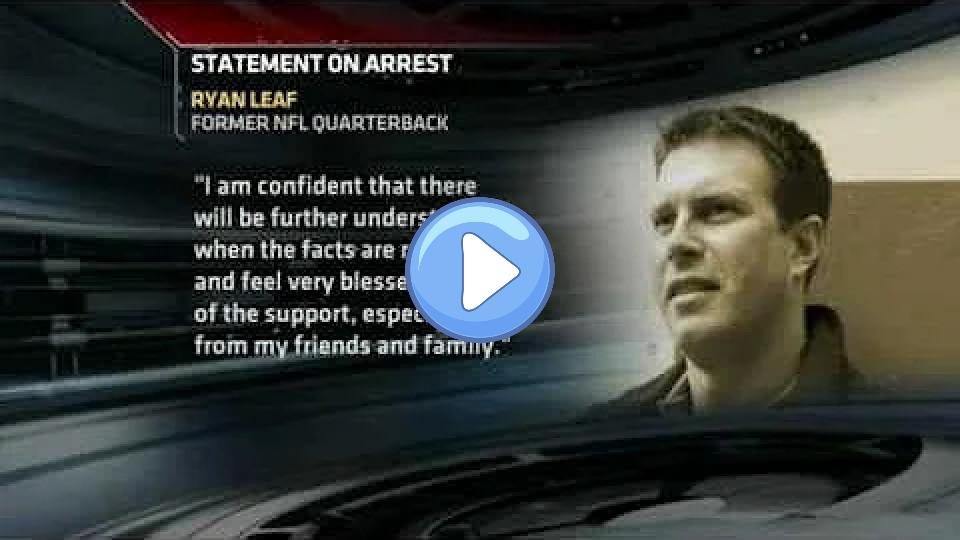Ryan Leaf's Sports Injuries
Type of Sport: American Football
Ryan Leaf's Sports Injuries Table
| Type | Area | Date | Consequences | Content | How It Happened | Recovery Duration | Rehabilitation Details | Impact On Career | Psychological Impact | Previous Injuries | Return To Competition | Severity | Treatment | Medical Staff | Long Term Impact | Preventive Measures | Competition Missed | Initial Symptoms | Re Injury Risk | Support System | Rehabilitation Location |
|---|---|---|---|---|---|---|---|---|---|---|---|---|---|---|---|---|---|---|---|---|---|
| Fractures | Left Wrist | 2000-11-11 | Season-ending injury. | Leaf's wrist fracture was a severe injury that required surgical intervention and extensive rehabilitation. | In a game against the Miami Dolphins, Leaf fell awkwardly on his left wrist while being tackled. | 3 months | Surgery followed by immobilization and physical therapy. | The injury ended his season and further derailed his career progress. | Increased frustration and pressure, leading to deteriorating mental health. | Previous shoulder injury in 1998. | Did not return for the remainder of the season. | Severe | Surgery to repair the fracture, followed by immobilization and physical therapy. | Orthopedic surgeons and physical therapists. | Potential long-term weakness and reduced mobility in the wrist. | Protective gear and wrist strengthening exercises. | Missed the remainder of the 2000 season. | Intense pain, swelling, and inability to move the wrist. | Moderate, depending on the healing process and reh | Support from medical staff, family, and fellow players. | Hospital and team rehabilitation facilities. |
| Shoulder Injuries | Right Shoulder | 1998-08-29 | Missed several games in the season. | Leaf's shoulder injury was a significant setback early in his career. The injury occurred during a preseason game against the San Francisco 49ers. | During a preseason game, Ryan Leaf injured his right shoulder after a hard tackle. | 6 weeks | Physical therapy and rest were prescribed to facilitate recovery. | The injury caused Leaf to miss crucial playing time, affecting his development and performance. | The injury added to the pressure and stress of his rookie season. | No significant previous injuries reported. | Returned to play in Week 7 of the 1998 season. | Moderate | Physical therapy, rest, and anti-inflammatory medications. | Team physicians and physical therapists. | Recurring shoulder issues throughout his career. | Strengthening exercises for the shoulder. | Missed the first six games of the season. | Severe pain and limited mobility in the shoulder. | High, due to the nature of the injury and the phys | Support from family, teammates, and coaching staff. | Team facilities and specialized rehabilitation centers. |
| Tendinitis | Right Elbow | 2001-09-22 | Reduced performance and missed practices. | Leaf's tendonitis was a chronic issue that affected his throwing arm, leading to persistent pain and difficulty in performing at a high level. | Developed over time due to repetitive throwing motions. | Ongoing management | Rest, anti-inflammatory medications, and modified training routines. | Chronic pain and reduced ability to perform effectively as a quarterback. | Increased stress and anxiety about his future in the NFL. | Shoulder injury in 1998, wrist fracture in 2000. | Managed to continue playing but at a reduced effectiveness. | Chronic | Rest, anti-inflammatory medications, and physical therapy. | Team physicians and physical therapists. | Ongoing pain and potential for further elbow issues. | Proper throwing mechanics and regular physical therapy. | Missed several practices and some game time. | Persistent pain and tenderness in the elbow. | High, due to the chronic nature of tendonitis. | Support from medical staff and coaching team. | Team facilities and specialized clinics. |
Ryan Leaf's Sports Injuries Videos
How Bad Was Ryan Leaf Actually?
Ryan Leaf, once debated as a better prospect than Peyton Manning, went from a can't-miss prospect to one of the NFL's biggest busts. Growing up in Great Falls, Montana, he led his high school to a state title but faced intense scrutiny and was known for his overbearing competitive nature. After a prolific college career at Washington State, where he set records and took his team to the Rose Bowl, he entered the 1998 NFL Draft alongside Manning.
The San Diego Chargers selected Leaf after the Colts picked Manning. However, ominous signs of Leaf's future struggles emerged early. He skipped important meetings, gained weight, and displayed an off-putting personality. His NFL career began disastrously, with poor performances, including what is considered the worst game in NFL history, and numerous controversies.
Leaf's tenure with the Chargers was marked by injuries, fines, and suspensions. He finished his NFL career with abysmal stats and was eventually benched. Post-NFL, Leaf faced a dark period of depression and opioid addiction, leading to jail sentences. He has since worked to turn his life around, holding positions as a QB coach and ESPN analyst, and now focuses on helping others battle similar demons. Despite his NFL failures, we wish Ryan Leaf the best in his ongoing fight for happiness and peace.
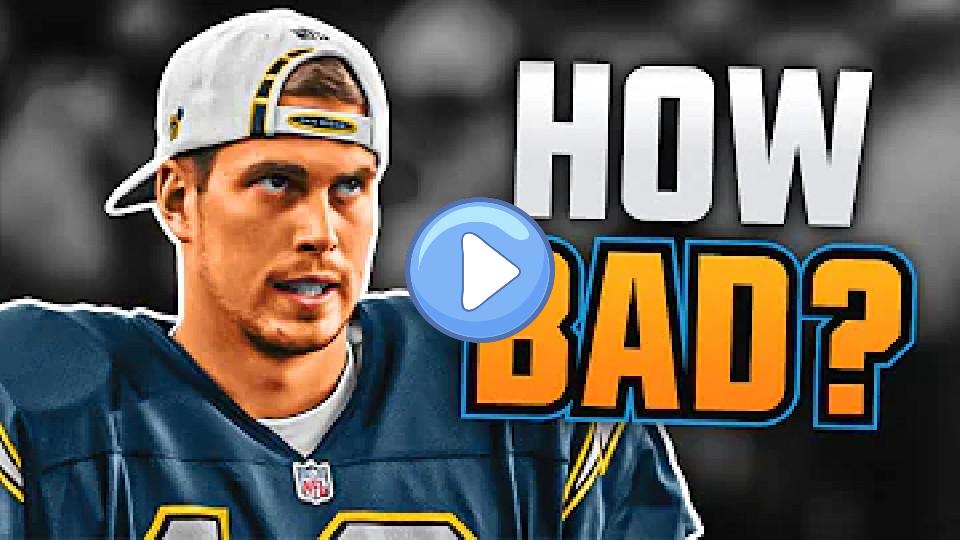
"A Huge Loss" – Ryan Leaf on the Latest Injury to Jets OT Mekhi Becton | The Rich Eisen Show
Jets' offensive lineman Mekhi Becton suffered an avulsion fracture of the right kneecap and is likely out for the year. This marks the second consecutive year the Jets will miss their gigantic left tackle. This injury is a significant setback for the Jets and quarterback Zach Wilson, as Becton was crucial for protecting Wilson and allowing him to utilize the offensive weapons around him. The Jets had some optimism for improvement this season with Wilson showing promise and a solid defense, but losing Becton is a considerable blow. The team might now look to veteran Dwayne Brown as a potential replacement.
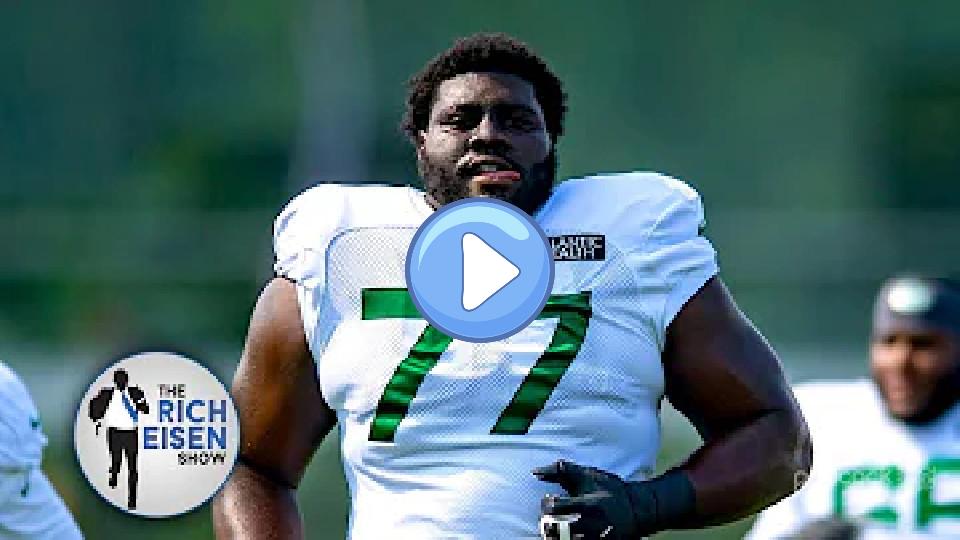
Ryan Leaf Career Highlights and Lowlights
The video titled "Ryan Leaf Career Lowlights" likely features moments from Ryan Leaf's NFL career that were not his best, highlighting his struggles or failures during his time as a professional football player.
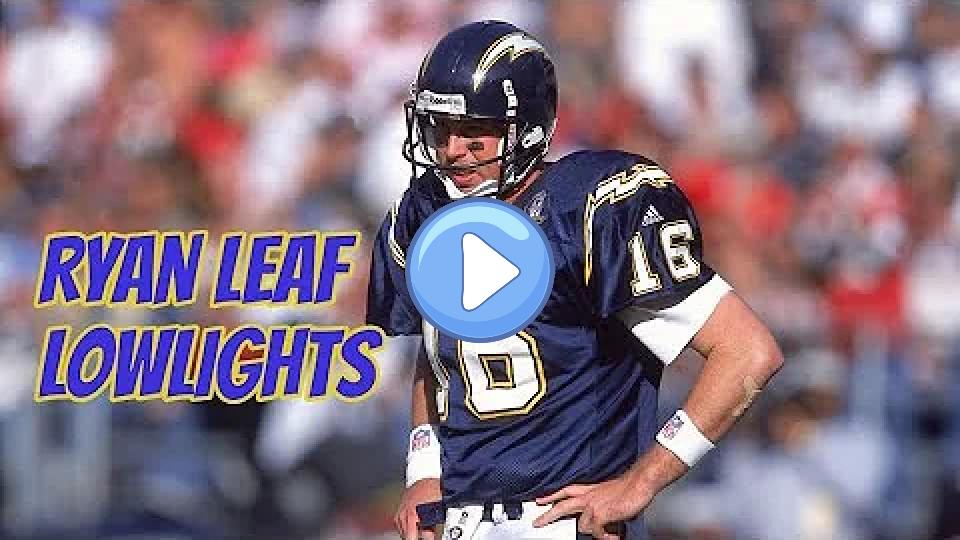
The Biggest Bust in NFL History: The Story of Ryan Leaf
Ryan Leaf was once a highly promising quarterback prospect, drafted second overall after Peyton Manning. However, his career quickly deteriorated due to poor performance, attitude issues, and off-field problems, including addiction. Leaf's NFL career ended after just a few seasons, and he faced legal troubles due to his addiction. After serving time in prison, Leaf began a journey of recovery and rehabilitation, becoming an advocate for addiction treatment and a motivational speaker. He now works to help others struggling with similar issues and has returned to the football world as an analyst and podcast host, sharing his story of redemption.
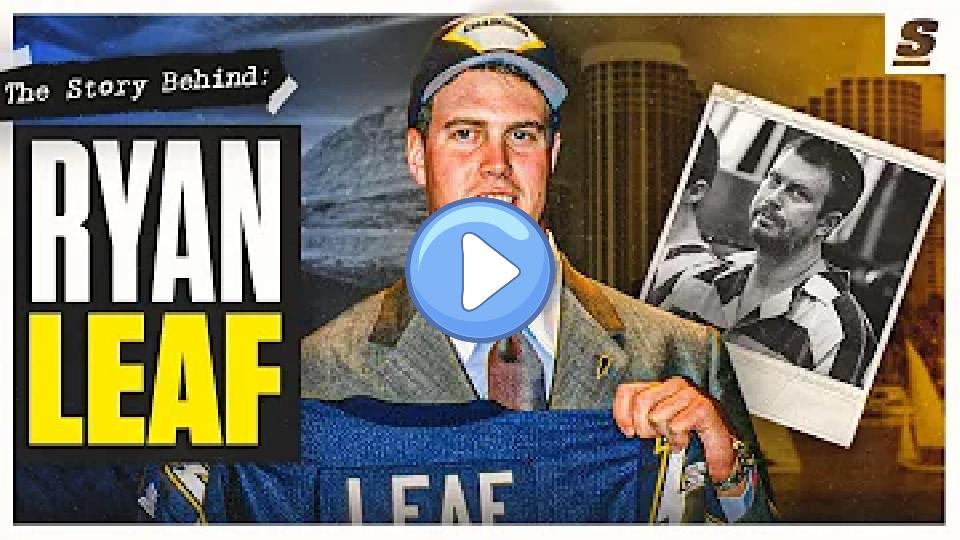
Former QB Ryan Leaf on Life Falling Apart | First Take | May 19, 2017
Former NFL quarterback Ryan Leaf discusses how his life unraveled after being the No. 2 overall pick in the 1998 NFL draft, behind Peyton Manning. He reflects on his naivety and lack of preparation for the challenges ahead. Leaf emphasizes the importance of building a strong personal foundation and seeking help, noting that vulnerability is a strength. He recounts his journey of losing control over his life for 14 years and how a transformative experience in prison, helping others, marked a turning point. Leaf accepts responsibility for his past failures, acknowledging that his issues were internal and not solely due to external circumstances. He expresses regret for not treating people better and recognizes the value of his life experiences in shaping who he is today.
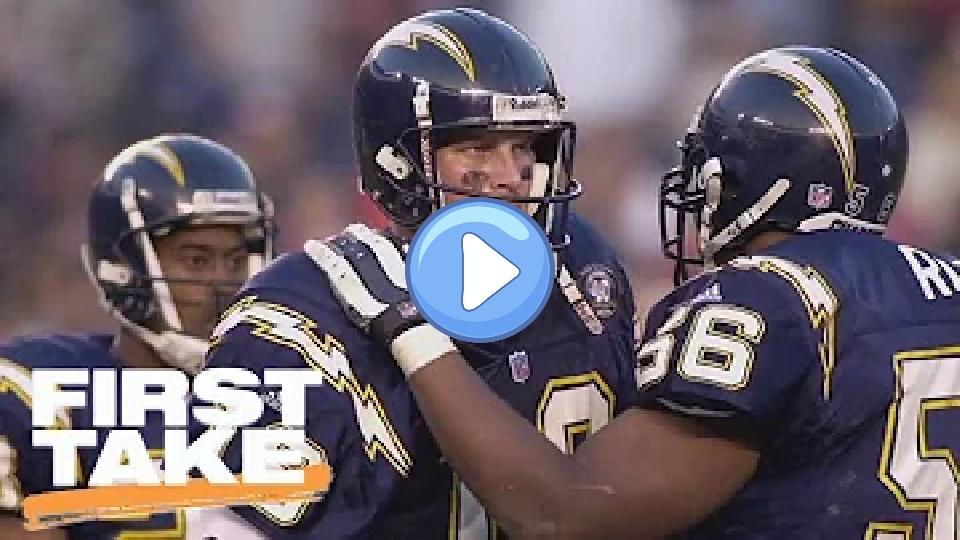
Ryan Leaf: 1st Round NFL Pick on His Fall From the Top, Addiction, Prison Time, and Life Now | The Pivot Podcast
The video features an in-depth conversation with Ryan Leaf, a former NFL quarterback and 2nd overall pick in the 1998 NFL Draft. Leaf discusses his tumultuous journey, including his struggles with mental health and substance abuse, which led to legal issues and imprisonment. He reflects on the pressure and expectations he faced as a high-profile athlete, his lack of accountability, and how he leaned into fame and wealth as a coping mechanism. Leaf shares how his time in prison became a turning point, leading him to focus on self-improvement and helping others. He talks about finding peace and purpose in his life post-incarceration, emphasizing the importance of service and transparency. The conversation highlights themes of redemption, personal growth, and the impact of mental health challenges.

Every Interception from Ryan Leaf’s Rookie Season
#TebowTime #TomBradyDaGOAT #NFL
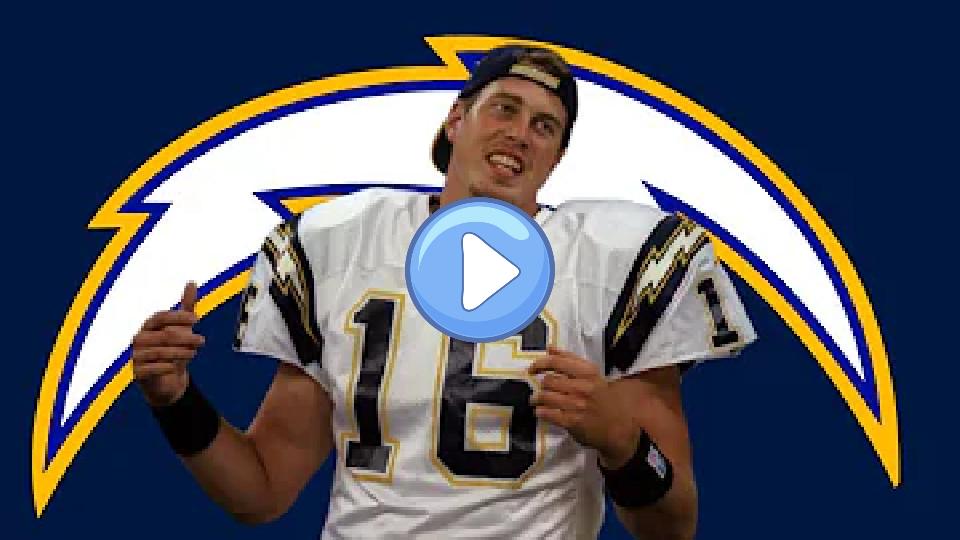
Ryan Leaf Arrested - Ryan Leaf Responds to Arrest
Former NFL quarterback Ryan Leaf, the second overall draft pick in 1998, was arrested in his Montana hometown on charges of burglary and drug possession. He was released on a $76,000 bond and is set for a court appearance. The West Texas district attorney plans to file a motion to revoke Leaf's probation. Leaf acknowledged his mistakes and expressed gratitude for the support from friends and family, stating he is committed to moving forward and will discuss the details in the future.
